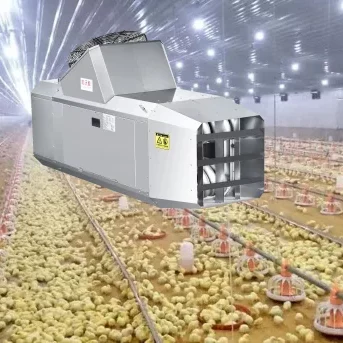Selecting the right gas heater for a commercial space is essential for ensuring comfort, efficiency, and productivity. Whether you own a small boutique or oversee a large warehouse, understanding the key differences between gas heaters and how they can be applied to your specific needs is vital for creating an optimal operational environment. This guide will walk you through the essential factors to consider and offer practical tips to help you make an informed decision.
Table of Contents:
Assessing Heating Requirements Calculating BTU Needs
Space Constraints Selecting Heaters for Small vs Large Areas
Ventilation Considerations Ensuring Proper Airflow
Compliance with Regulations Meeting Local and International Standards

Assessing Heating Requirements Calculating BTU Needs
Determining the heating needs of your commercial space is the first step in selecting the right gas heater. Begin by calculating the BTU (British Thermal Unit) requirements, which measure the heater’s ability to heat a given area. Key factors to consider include the square footage, ceiling height, insulation quality, and the typical outdoor temperature during the colder months. A precise BTU calculation ensures that you choose a heater with sufficient power to maintain the desired temperature without wasting energy or overworking the system.
Space Constraints Selecting Heaters for Small vs Large Areas
Space constraints play a significant role in determining the best gas heater for your commercial space. For smaller areas, compact gas unit heaters are an excellent choice, providing efficient heating without taking up much room. In contrast, for larger spaces such as manufacturing facilities or warehouses, infrared gas heaters may be more appropriate. These heaters focus heat on specific zones, delivering warmth exactly where it’s needed, without having to heat the entire area. This targeted heating approach helps conserve energy and reduce operational costs.
Ventilation Considerations Ensuring Proper Airflow
Proper ventilation is crucial for the safe and efficient operation of gas heaters. Sufficient airflow prevents the accumulation of harmful gases and ensures optimal combustion. Before installation, consult the manufacturer’s guidelines to understand the required ventilation specifications, which may include installing vents or utilizing existing ventilation systems. Adequate ventilation not only protects occupants from potential hazards but also improves heater efficiency and extends its lifespan.
Compliance with Regulations Meeting Local and International Standards
Adhering to local and international regulations is essential when installing gas heaters in commercial spaces. Compliance ensures both safety and legal protection. It’s important to familiarize yourself with the relevant codes and standards, which can vary depending on your location and the type of gas heater you are using. These guidelines cover installation, operation, maintenance, and safety features. Consulting with a professional who is well-versed in these regulations can help ensure that your installation meets all necessary requirements.
Selecting the right gas heater for your commercial space requires more than simply choosing a model off the shelf. By carefully assessing heating requirements, considering space constraints, ensuring proper ventilation, and adhering to relevant regulations, you can create a safer, more efficient environment. These steps not only improve comfort and productivity but also contribute to the overall success of your business operations. If you’re ready to explore the best heating solutions for your space, consider consulting with experts who can provide tailored recommendations and guide you through the decision-making process.
